I posted about being surprised at how much people like me and one of the people who commented was Kate, mentioning that she also is always surprised by the fact that people like her. I know this is a common reaction; at the wise old age of 64, I've encountered it before. And the fact that it is so common disturbs me. Most people that I've met have been likeable. And yet, apparently most of them don't know it.
Kate mentioned that she thought my self-esteem comes from living with Auntie. The story on that is that when I was 16 I went to live with my Great-Aunt Julie (for whom my Julie was named and the reason I attended two high schools). That's certainly part of it. Another part of it is that I had that incredible ultimate oney-oney first few years. Not only was I my extended family's first child (and for the first five years, the only one to live) of my generation, I also had my father until he died when I was six. The thing about both my father and Auntie, is that they knew how to treat children. They made me feel utterly loved and as though they enjoyed having me around. They treated me not only with love, but also with respect.
The reason I went to live with Auntie was my step-father, who was certainly a mass of contradictions. He was good to us in many ways; he adopted us when he married my mother so that Forrest and I would have all of the rights that any children he might have with my mother (that would be Colleen). We always had nice things. He never forgot a birthday or other important date. In an emergency, he was there. When I came home at 21, in 1963 when this was an immensely big thing and announced that I was pregnant and not only was not marrying the father, I wasn't telling anyone who he was, my step-father's reaction was, "A baby is always a good thing. What can we do to help?" On the other hand, day-to-day he was impossible. He would take away my library card for a month if I arrived home from playing with a friend one minute late. He regularly sharpened his sarcastic wit on my vulnerable soul. Every time he scolded me he ran down the list of everything I had ever done wrong from the day he married my mother. When Forrest or Colleen did anything wrong, he called them Joy. And when I left home, when Colleen misbehaved, he called her Forrest.
Kate had an equally oppressive mother. She comments that we always spent the night at my house "for obvious reasons" and she means that, as bad as it was at my house, it was worse at hers.
What are we doing to children? I can understand Kate and me having a hard time recognizing that people would like us after spending time in that atmosphere. But, that was extreme. Neither of us was physically abused. (I think! Oh, how I hope I'm right about that one, Kate.) And, although there are many children who grow up being treated much worse than we were, the standard model parent does a better job. And yet, and yet . . . the standard model parent seems to be raising children who don't know their own worth.
Julie commented on that same post that I had been kind to her friends. I assure you, while I would be affronted had anyone said I had been unkind to them, I never thought of how I treated them as particularly kind. If they spent the night with us on Fridays, they knew it meant that they would spend Saturday morning with us cleaning house; they then got to go do our family treat with us as soon as the house was clean, but since I was always border line poor, that usually consisted of taking a picnic lunch to some park, no big treat one would think. They had to abide by our house rules in our house. I treated them with respect; I believe that I treat most people with respect. How are kids treated when they visit friends that is so different that the minimum decency I showed is considered kind? (And, horror of horrors, how were people treating my kids when they visited their friends?) And, Julie must be right, because her friends loved coming to our house and are still excited to see me if we are both in town at the same time.
I know that some of it is the schools. There are gifted teachers and teachers who love children and treat them well. But there are also horrid teachers. I had a few, you had a few. That can't be enough to counteract good parenting, can it?
Society also has something to do with it. Once when Richard was ten, we went to the movies. He got in line to buy popcorn before the movie started. I came out of the bathroom and went into the theater, and at that time he was at the head of the line. Twenty minutes later he still hadn't come in. I went out, he was still standing at the same place at the counter, but he was no longer at the head of the line because it had moved to beside him. The girls behind the counter were simply ignoring him and waiting on the adults. And when I objected to this, the poor excuse for a man standing next to him (one of many who should have directed the counter girl to my child) had the nerve to say, "Don't rock the boat, lady!" And when he limped out of there bleeding profusely at the ego, and I had talked to the manager of the theater and the young ladies behind the counter had been fired, Richard got his popcorn free and we got to stay for the next showing so that Richard could see the entire movie and then the manager sent us home in a cab because, it being Fairbanks in the winter, it was now too cold and dark for us to walk home. If kids get treated like this often, and they do, and not all of them have a parent who goes into Mother Bear mode when it happens, that would certainly serve to communicate to them that they are worth nothing.
We have to fix this, folks. I believe that it is our duty as adults, and if I believed in God I would consider it as having been assigned by her, to clear the path of any child who comes within our awareness to whatever extent we can. If that means telling the skateboarder we haven't met that we need him to wear a helmet so that he will still be here when we get old and need brain surgery or a brake job or our mail delivered and will be depending on him to do it, then we need stop him and do that. If it means noticing the kid cleaning up after her dog and thanking her for it, we need to do that. If it means that when we see a parent losing patience with a child in a store that we comment that it looks like they are having a stressful time and offer to treat them to coffee and soda and sit with the child while the parent shops (not a good idea if you are a man or live in a large city, I recognize. Sometimes looking like a granny is a very good thing), then we need to do that. What else, I challenge you, can you add to the list? Who's willing to take me up on this one and work so that there are fewer children who grow up surprised that people like them?
Monday, July 10, 2006
Subscribe to:
Post Comments (Atom)
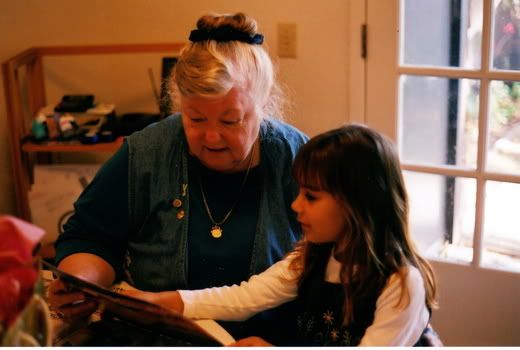
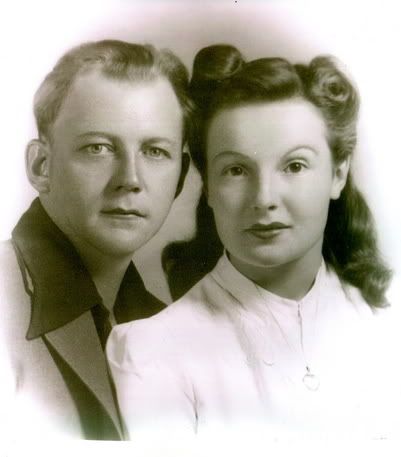
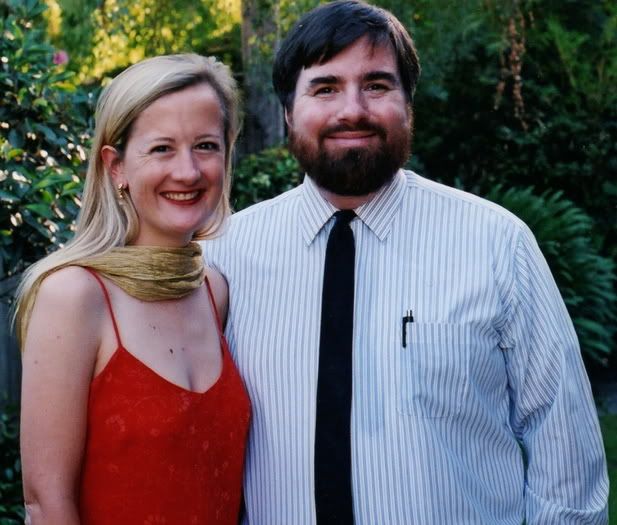
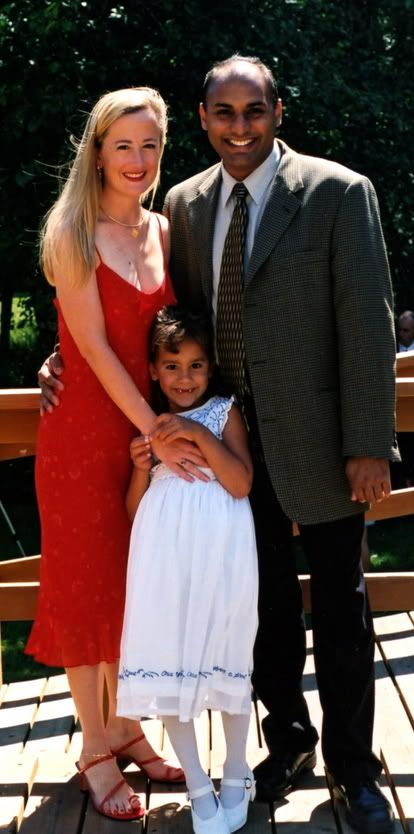
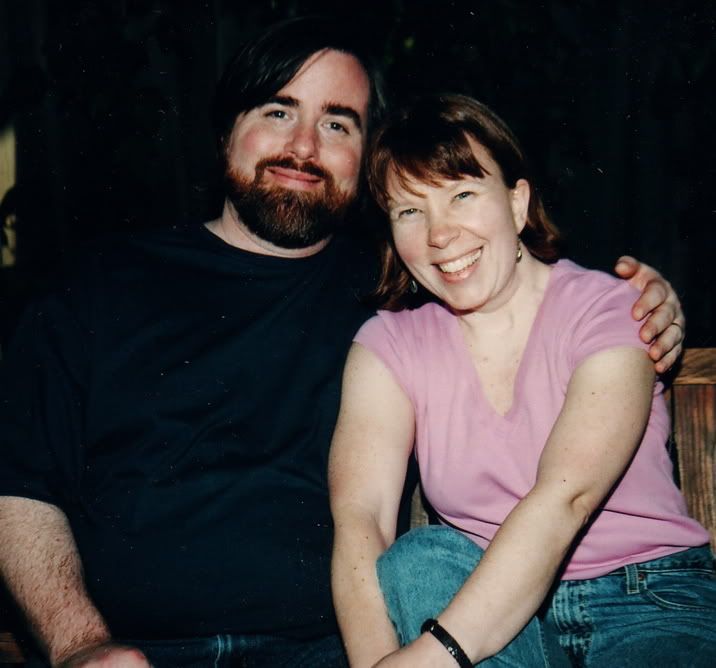













5 comments:
I think among the adults of our parents generation, it was also considered unseemly for children to be "prideful". So even if parents were supportive and gave us attention and love, there was a certain push toward humility, toward not "thinking too highly of oneself" that in some ways probably hampered kids self-esteem.
Nowadays I think we live in a society that doesn't value kids very much. I was just reading another blog yesterday where the blog owner was going on about why should she pay to educate someone else's kids and that all education should be private and if people can't afford to pay for schooling they shouldn't have kids, blah blah. Someone in the comments section rightly pointed out that having a well-educated populace benefits all of us; it's a common good that we all should pay for, like roads or fire departments.
And ally bean, I totally relate to having received no really constructive advice about skills and how I might be able to utilize them. A lot of it was the times...for most girls it was assumed that we'd go to college to find a husband, and then drop out of the workforce to be housewives and mothers. Or, it was in the vein of "you're a good writer, but you'll never be able to make a living at that..."
I think this is your best post yet. Wonderfully written and full of heart. Cherry told me that she sees a lot of you in my writing, because we both write from the heart. I couldn't ask for a better compliment.
Pseu,
People who can't see that we all benefit when children are educated (or fed or housed or given medical care) upset me. People who think that the parents shouldn't have had them if they couldn't afford them totally ignor the fact that many people can afford them when they have them, and then circumstances change. What are they supposed to do? Shove them back in?
There was a woman where I worked two years ago who went on like this about paying for special ed for other people's children one day and I reminded her of all of the people who have no children but pay taxes to educate hers. Also, the big waste of our tax money is not going to other people's children. It is going to other people's cronies. How many kids could you educate for what we throw away on Halliburten overcharges?
J. I, on the other hand, find being compared to you a great compliment. When I look at what a fine woman you are, I am gratified that anyone would think I had contributed to that. You are my Deardle Heart, and I will love you forever.
I don't have any children myself, and I likely won't, but I completely agree with you. The way some children are treated just makes me want to pick them up and hug them and tell them everything is going to be okay. I was very lucky, I grew up in a family that was always supportive and loving. I always knew I was loved, even if my parents didn't have a clue why I was doing thing things I was doing. (My family and I disagree about practically everything, except that we're family and we love each other and that's all that really matters in the end.)
My house was the one everyone wanted to come to. Everyone was welcomed, regardless of who they were or what their station in life. And trust me, I brought home all kinds of strays. My mother always tells me I have the strangest friends, because they were always the people no one else wanted to talk to. So they didn't have the best social skills, but they were always welcomed and treated just like anyone else at my house. And you know what happens? When you treat kids like people who deserve respect and autonomy they respond. They start to lose that sense of self-loathing, of not belonging. They start to believe in themselves and their abilities. They start to laugh and smile and be happy. And happy children should be the goal, shouldn't it? When happy means confident, self-aware and hopeful about their future.
I remember spending the night with other friends -- and really getting how different my house was from there. Parents who screamed at their children, being verbally abusive, when someone else (me) was there to witness it. Parents who seemed to have no real interest in what their children did, so we could just walk out of the house well after dark to go gods only knows where with gods knows who. What always struck me was how often the fathers just seemed to be completely disconnected. My father wasn't the most overly demonstrative man in the world (he grew up in a time when men didn't really talk about things. To prove that you loved your family, you worked hard and provided for them.) but he was always involved in our lives. (Sometimes way more than I wanted him to be, actually.) He always cared about my grades, he always cared about my friends, he always cared about what I was doing and what I wanted to do when I grew up. He may not have said he loved me very much, but I never doubted that. (Which is doubtlessly why I expect a great deal out of men in my life now.) My family gave me the framework to deal with the really bad stuff that happened to me as I got older. If I didn't have that, if I hadn't been taught that I was valuable and important regardless of my circumstances, I'd probably not be here today.
I think about my neice. She's two and the only grandchild, so she's completely spoiled. She's also the luckiest child in the world, because she doesn't have to worry or doubt that she's loved and wanted and valued. Which is gonna be good, because she's also the most stubborn child I've ever seen. There's gonna be lots of challenges ahead with her, but I don't worry about her too much because I know she's going to be raised in this family who knows how to treat children. And it makes me sad that not all children get that, then we blame then when they grow up and don't know how to value themselves.
Post a Comment